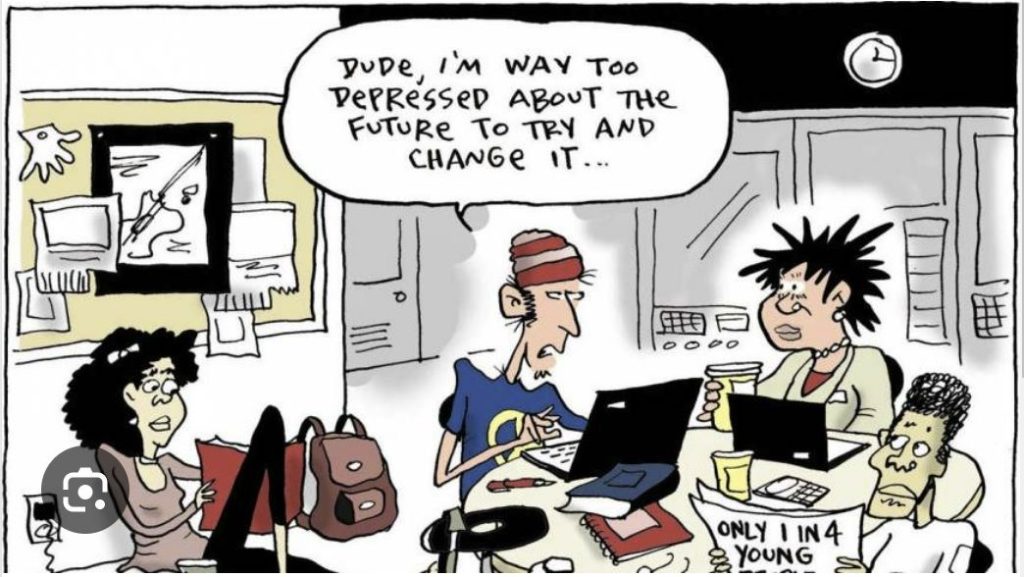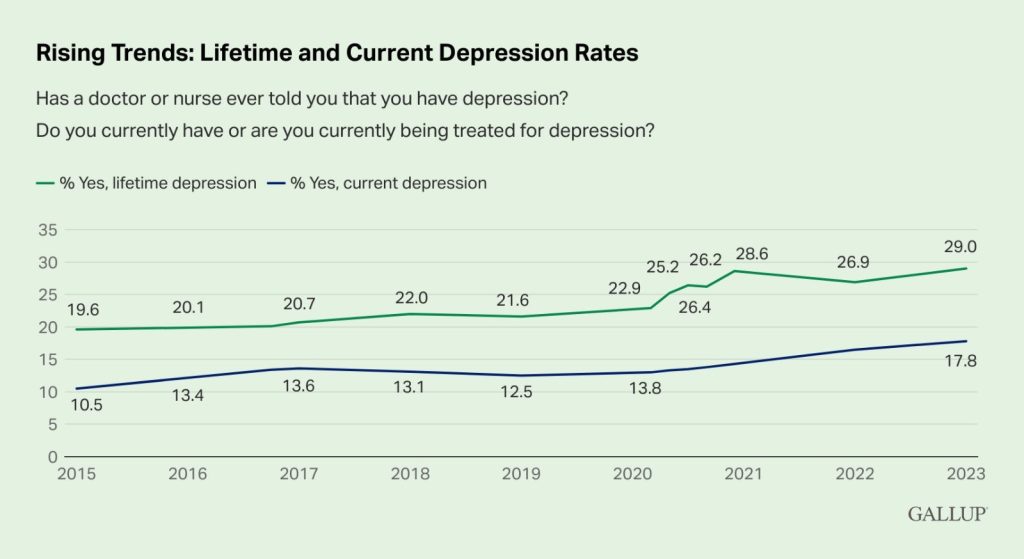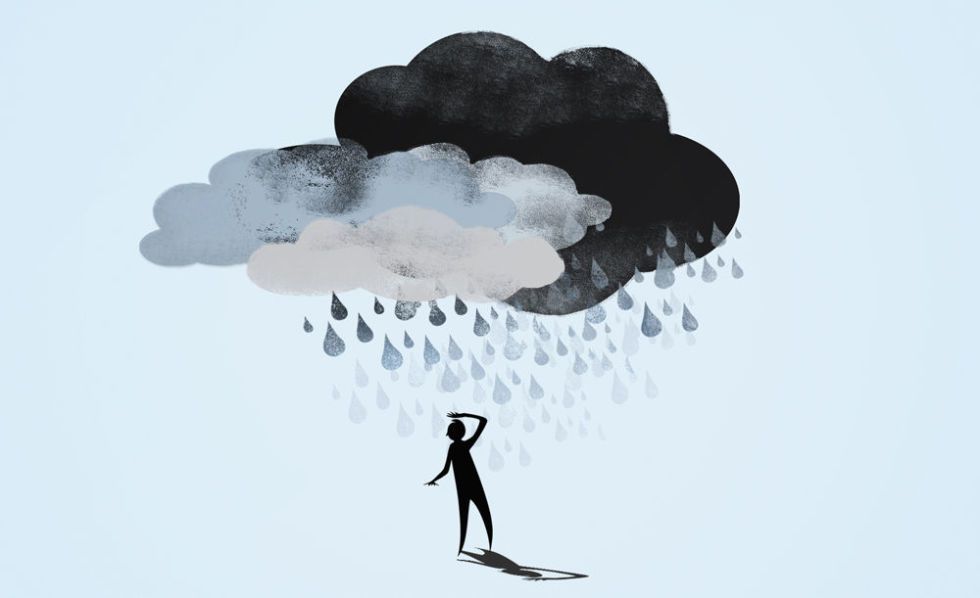A new Gallup survey of 5,167 American adults says that depression in the USA has just reached new heights.
The percentage of respondents who report having had depression “at some point in their lifetime” has gone up ten points since 2015. It’s now at 29%. In other words, nearly a third of us have been depressed. And Gallup reports that that one in five of the people you pass on the street have gone into therapy for depression. Seven percent more than ever before.

What Gallup doesn’t tell you is that there’s a flipside. Two thirds of us say we have never been depressed. That’s an outrageous claim. Even people who are rich, famous, and gorgeous get depressed. I suspect, in fact, that we all experience depression every week. But, again, Gallup says a whopping 61% of us have never had depression.
To understand this, you have to know the hidden flaw in surveys that ask people to report on themselves. People do not know themselves. In a classic experiment done way back in 1968, 120 men were gathered and asked to self-report on whether the use of sex in advertising would influence them. They all said no. sex would have no influence on them. Absolutely none.
Then the experimental subjects were divided into two groups. One was shown a glossy, sparkling picture of a new car. The other group was shown the same car in the same lighting but with one difference. In front of the car was “a sexy redhead, dressed in black lace panties and a sleeveless sweater.”
The men who saw the photo with the redhead rated the car as more “appealing, lively, youthful, and better designed,” not to mention “more expensive” than the group who had only seen the car. And these were people who had sworn vehemently that sex wouldn’t influence them. So they didn’t know themselves. Which is why you can’t trust self-reports. Or surveys based on self-reports.

But is there anything that could be depressing us now more than at any other time in the last eight years?
Loneliness is one of the greatest triggers of depression. But according to a Pew report, the percentage of Americans experiencing loneliness is declining. Yes, loneliness is decreasing.
Then there’s downward mobility: the idea that you will make less than your parents for the first time in American history. According to the Atlantic, that’s not true. Millennials, for example, are thriving financially.
What’s more, in 2023, we have the lowest unemployment in the last 54 years and the greatest number of available jobs in American history. Our stock market is more than three thousand points higher than ever before. Our inflation is lower than any of our allies in Europe. And our wage growth is higher even than China’s. We should not be depressed.

But one giant factor is almost certain to depress us. It’s two visions of doom.
Our economy is the best in history, but those on the right repeat over and over again that it’s the worst. Donald Trump, one of the most effective thought-shapers of the modern era, tells us that it’s the apocalypse. We are being undermined by communists who seek an American dictatorship. We are being invaded at our southern border. Says Trump, we are losing our country.
Then there are the doomsayers of the left, who tell us it’s the end of the planet. Modern industrial civilization is poisoning our atmosphere with greenhouse gases and we will be doomed by man-made climate change if we don’t spend $3 trillion a year to get rid of excess carbon dioxide.
So entire generations of kids are growing up believing they are doomed. Believing that humans are a cancer on the planet. Or that invisible elites are out to enslave us.

No wonder nearly one in five of us feels depressed.
References:
https://news.gallup.com/poll/505745/depression-rates-reach-new-highs.aspx
Smith, G. H., and Engel, R. (1968). Influence of a female model on perceived characteristics of an automobile. Proceedings of the 76th Annual Convention of the American Psychological Association, 3, 681–682.
D. A. Lieberman (1982), Human Learning and Memory, Cambridge University Press.
Influence of a female model on perceived characteristics of an automobile
Posted on December 22, 2014 by Bob L. T. Sturm, https://highnoongmt.wordpress.com/2014/12/22/influence-of-a-female-model-on-perceived-characteristics-of-an-automobile/
https://www.commerce.gov/news/blog/2023/02/news-unemployment-its-lowest-level-54-years
https://www.statista.com/statistics/225698/monthly-inflation-rate-in-eu-countries/
https://www.cnn.com/2020/01/11/politics/millennials-income-stalled-upward-mobility-us/index.html
______
Howard Bloom of the Howard Bloom Institute has been called the Einstein, Newton, and Freud of the 21st century by Britain’s Channel 4 TV. One of his seven books–Global Brain—was the subject of a symposium thrown by the Office of the Secretary of Defense including representatives from the State Department, the Energy Department, DARPA, IBM, and MIT. His work has been published in The Washington Post, The Wall Street Journal, Wired, Psychology Today, and the Scientific American. He does news commentary at 1:06 am Eastern Time every Wednesday night on 545 radio stations on Coast to Coast AM. For more, see http://howardbloom.institute.
